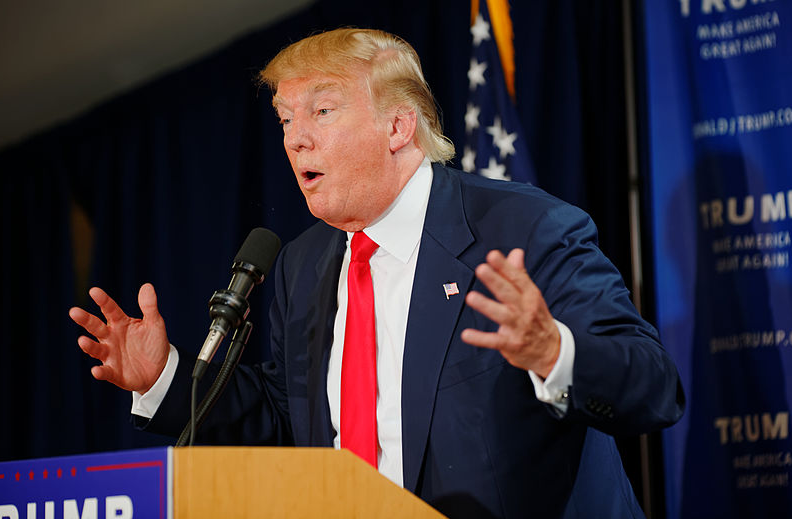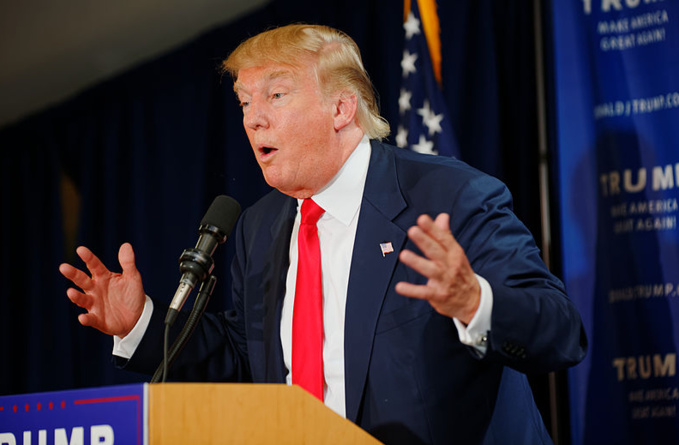After the victory of Donald Trump in the presidential elections in the US in November 2016, most economic news was somehow tied to the agenda of the new administration - this involved trade, and fiscal and monetary policy. Back in January, the US left the agreement on the Trans-Pacific Partnership, and blocked a number of decisions at the WTO level at the end of the year. However, the main event from the point of view of influence on foreign markets, of course, was the approval of a large-scale tax reform by the US Congress. The stock indices have been growing all year round on its expectations, and the inflow of capital to the US market prevented the increase in market rates following the tightening of the Fed's policy.
Most experts did not expect that the reform would be adopted before the end of the year. Consequently, analysts basically shifted its initially overestimated effect to at least the second half of 2018 in recent forecasts. For example, the IMF initially forecasted that global growth would accelerate primarily due to the improvement in the situation in the US. Now, however, the fund expects only moderate growth of the US economy - from 2.2% this year to 2.3% next year. A that, the expectations of improving the situation in the world economy were justified without reform: in China, the authorities of the country were fighting with all the risks of a "hard landing" of the economy, and a relatively weak dollar finally slowed the outflow of capital from the country. Growth in Europe and in oil-exporting countries also accelerated.
The actual effect of the reform is likely to be significant at least in 2018, and is unlikely to be limited to US companies (although sectors of traditional industry and services of the US are considered the main beneficiaries of the reform). The global conditions of competition will be influenced not only by the reduction in the rate of profit tax from 35% to 21%, which will support corporate profits and stock quotes (effective tax rates are lower, but also in nominal terms among developed countries, the United States is second only to Japan and New Zealand). Another positive effect will be transition to the territorial principle of taxation. Before repatriating profits from a foreign subsidiary, a parent company from the United States must pay tax at a rate of 35% (minus the amount already paid in another country), while taxation at the source does not imply such requirements (although repatriation of the existing profits will require 7.5% %). The US Treasury estimated the amount of such funds held abroad at $ 2.5 trillion. If at least part of this money returns to the US, it can further heat up the market and strengthen the tendencies associated with tightening monetary policy.
However, expectations of higher inflation and market rates have not been justified this year. In December 2016, the Fed's base rate was 0.5-0.75%, at the end of 2017 - 1.25-1.5%, but the required yield of ten-year securities (they are also an indicator of long-term inflation expectations) grew and continues to fluctuate at a level below 2.5% (and in July it fell to almost 2%). Growth is already evident for two-year securities - from 1.2% at the beginning of the year to 1.9% at the end. There is some intrigue about the rate of the Fed policy tightening because of the arrival of the new head of the regulator, which is unlikely to hurry to cool the economy by a sharp increase in rates. Although Janet Yellen was very careful on this post, in 2015 and 2016, rates were raised only once.
Next year, market rates are likely to start to rise, especially if reform, as the White House hopes, will not only lead to increased corporate profits, but also investment and consumption. However, and this is somewhat paradoxical, the more attractive the US market for foreign investors or repatriates will be, the slower the rates will grow. At the same time, given the extremely slow curtailment of monetary support in the euro area and Japan, we can hardly expect any significant risks for emerging markets - this year they recorded a net inflow of funds for the first time in three years.
source: ft.com, reuters.com
Most experts did not expect that the reform would be adopted before the end of the year. Consequently, analysts basically shifted its initially overestimated effect to at least the second half of 2018 in recent forecasts. For example, the IMF initially forecasted that global growth would accelerate primarily due to the improvement in the situation in the US. Now, however, the fund expects only moderate growth of the US economy - from 2.2% this year to 2.3% next year. A that, the expectations of improving the situation in the world economy were justified without reform: in China, the authorities of the country were fighting with all the risks of a "hard landing" of the economy, and a relatively weak dollar finally slowed the outflow of capital from the country. Growth in Europe and in oil-exporting countries also accelerated.
The actual effect of the reform is likely to be significant at least in 2018, and is unlikely to be limited to US companies (although sectors of traditional industry and services of the US are considered the main beneficiaries of the reform). The global conditions of competition will be influenced not only by the reduction in the rate of profit tax from 35% to 21%, which will support corporate profits and stock quotes (effective tax rates are lower, but also in nominal terms among developed countries, the United States is second only to Japan and New Zealand). Another positive effect will be transition to the territorial principle of taxation. Before repatriating profits from a foreign subsidiary, a parent company from the United States must pay tax at a rate of 35% (minus the amount already paid in another country), while taxation at the source does not imply such requirements (although repatriation of the existing profits will require 7.5% %). The US Treasury estimated the amount of such funds held abroad at $ 2.5 trillion. If at least part of this money returns to the US, it can further heat up the market and strengthen the tendencies associated with tightening monetary policy.
However, expectations of higher inflation and market rates have not been justified this year. In December 2016, the Fed's base rate was 0.5-0.75%, at the end of 2017 - 1.25-1.5%, but the required yield of ten-year securities (they are also an indicator of long-term inflation expectations) grew and continues to fluctuate at a level below 2.5% (and in July it fell to almost 2%). Growth is already evident for two-year securities - from 1.2% at the beginning of the year to 1.9% at the end. There is some intrigue about the rate of the Fed policy tightening because of the arrival of the new head of the regulator, which is unlikely to hurry to cool the economy by a sharp increase in rates. Although Janet Yellen was very careful on this post, in 2015 and 2016, rates were raised only once.
Next year, market rates are likely to start to rise, especially if reform, as the White House hopes, will not only lead to increased corporate profits, but also investment and consumption. However, and this is somewhat paradoxical, the more attractive the US market for foreign investors or repatriates will be, the slower the rates will grow. At the same time, given the extremely slow curtailment of monetary support in the euro area and Japan, we can hardly expect any significant risks for emerging markets - this year they recorded a net inflow of funds for the first time in three years.
source: ft.com, reuters.com



















